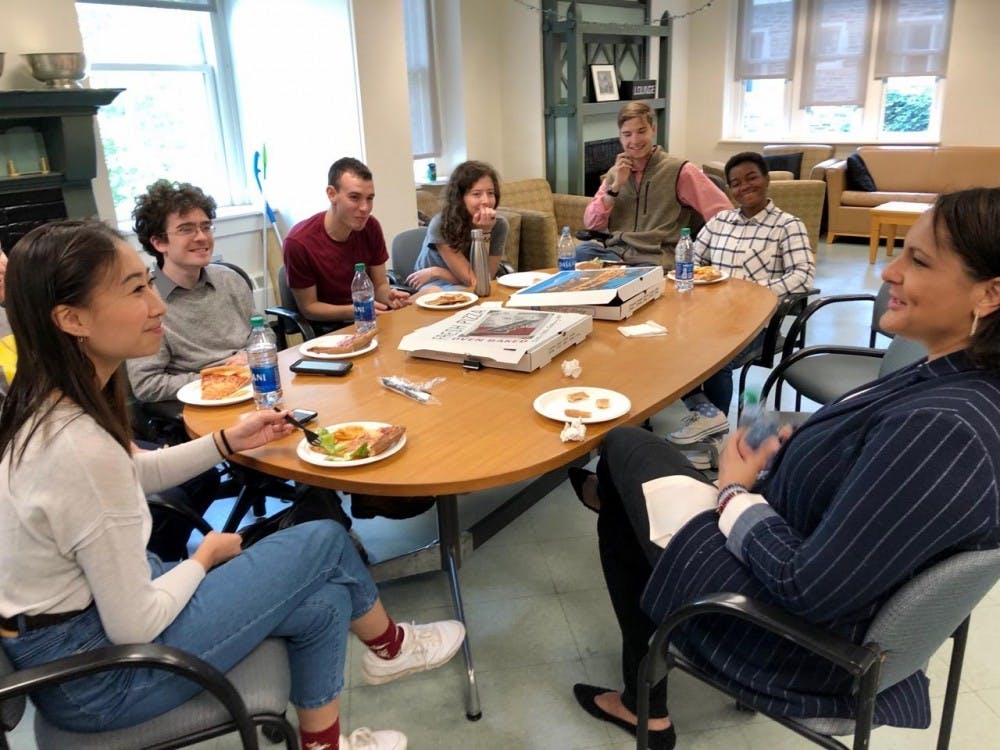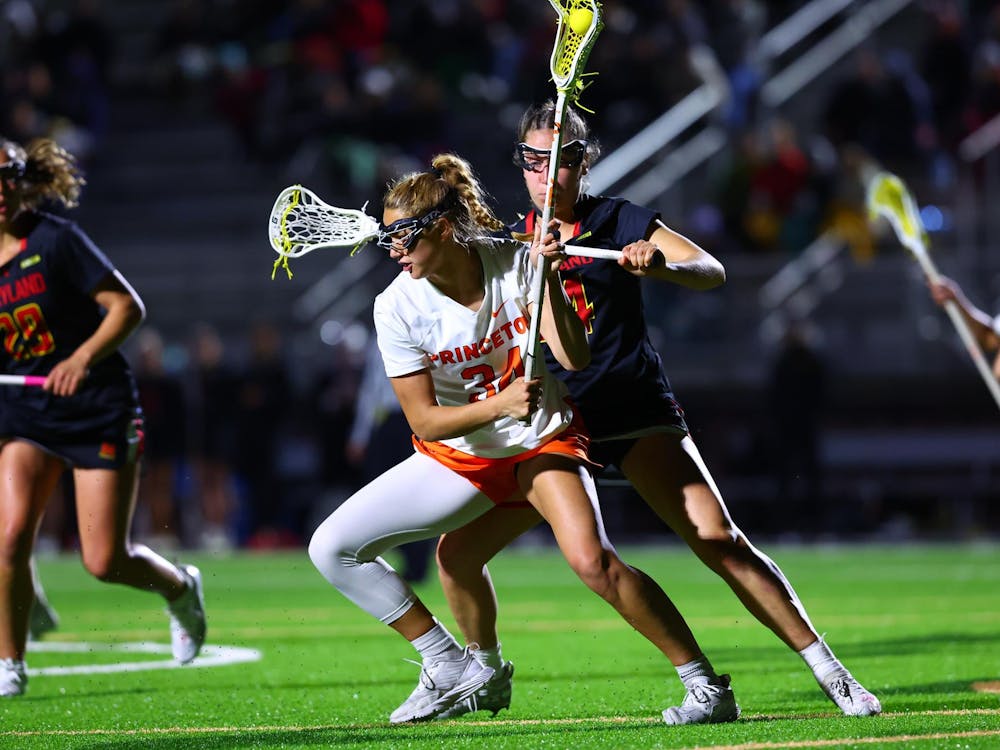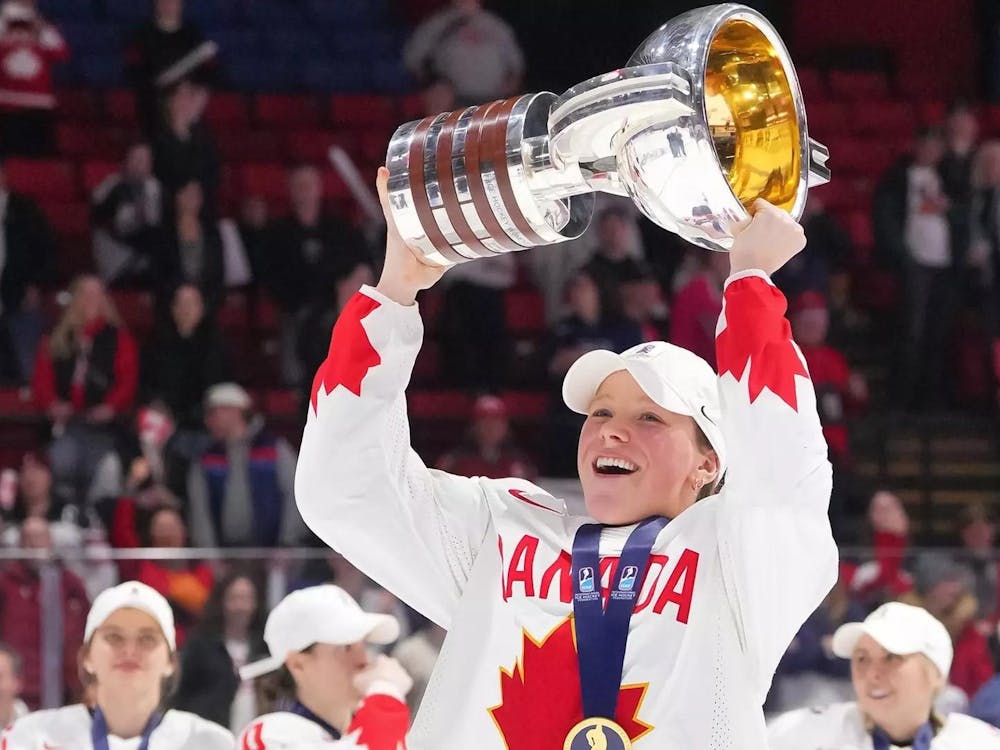Karen Finney is a political correspondent for CNN. She was the spokesperson for Hillary Clinton’s 2016 presidential campaign, having previously worked with her on her first Senate campaign. The Daily Princetonian sat down with her to talk politics, journalism, and social media. The transcript below is edited for length and clarity.
The Daily Princetonian: Something I noted that was interesting, when [University spokesperson Ben Chang said] that you were coming to speak with us over email, one way he introduced you was by linking to your Twitter account. I was wondering ... as someone who has that much experience in politics and journalism, how do you see that medium shaping the conversation of a lot of what you do, and how do you try to use it?
Karen Finney: I think sometimes in political discourse we focus too much on what’s happening on Twitter, and don’t realize that is a segment of the population and that there are even people who have access to Twitter who aren’t using it, and so sometimes I think it has an outsized opinion, voice in what people think is important. That’s something I certainly always remind candidates, that, you know, just because those ten people didn’t like your speech, that does not mean it was a bad speech. There’s three hundred other people who saw it who thought it was great…
People say a lot of things that they would never say to your face, particularly [to] women. My friend Kirsten Powers who’s at CNN — she used to be at Fox — we had this idea to do a website and try to out all the people who said nasty things and figure out who they were … If you had to actually own what you just said, would you say it?
I think it’s good to have a space where you can express yourself and put ideas out there. I just wish people took a little more responsibility with making sure what you say is actually true and accurate. I research everything I’m going to say on television to make sure I can back it up. I do believe there are actual things that are facts. There’s not subjective facts.
It is certainly a way to build a community, in a very positive way … There are people that I follow that I’m interested in what they have to say on different things or on different topics and issues so I think for that it’s of huge value…
I think under Trump it’s gotten worse — much more racist, much more sexist. I felt like that was toxic … The Washington Post has eight people on the White House beat, and they split up overnights because the White House has taken the position that when the President tweets, that is on the record, so that means you have to cover it. Given that this president tweets all hours of the day and night … that is a huge shift for journalism, particularly given that the President will tweet one thing [and] it might be the exact opposite of what his spokesperson said earlier that day…
It used to be the idea that social media was a great way for a politician to have more of a direct, two way conversation with people. Trump uses it as his megaphone … His ability to communicate a message is so outsized, and I think it’s a very different thing … to use Twitter as a means to make policy. We’ve never done that before … The implications of that are our allies and adversaries around the world all have to follow it because that’s a big part of how they figured out what’s going on in the country…
DP: What was it like, being on [Clinton’s 2016 campaign] generally, and more specifically, what was it like being on that campaign on election day?
KF: I had an interesting perspective because I had worked with Hillary in the White House, and I did her first Senate campaign. So I watched her become a governor’s wife, to the first lady of our country, and all that role encompasses … She’s a human being, so watching her go from a much smaller environment to, overnight, all of the country’s hopes and dreams and woes and emotions, it’s all on you. As a woman watching, that was pretty incredible...
I used to say she is the most unknown known person, maybe in the world, certainly in our country … She’s obviously been in public life [for] a long time and there’s a lot of narratives already set in about who she is and what she’s about. Part of the challenge was: Can you reintroduce that person to people? Yes and no...
As I watch Elizabeth Warren now, it’s just interesting to me. She’s got a plan for everything, and she’s a bookworm and a policy nerd, and Hillary was too, and yet, a lot of the coverage focused on all of the atmospherics, like her emails, or her tone, or her this or her that … instead of the substance…

As a Democrat who had worked for President Obama, and Obama was still in office, it also creates a challenge because there were things she disagreed with him on but she didn’t want to say that publicly … It creates a really interesting and tough dynamic … If you’re trying to make the argument that we need to do better in the economy, you don’t want to be saying “Obama sucks, and I’m gonna do better.” How do you say we can just keep doing better, but then to also be seen as your own person and not, as people were saying, Obama Round Three...
Election day … I was with Tim Kaine, and we were in Virginia. It was so sweet. He went to vote and the first person in line was this old lady getting to vote for a woman, and it was so charming. Cut to: We’re in a hotel in midtown Manhattan. The Javits Center was gonna be where we were gonna celebrate … We were in our hotel, and the idea was at some point, we’re gonna all get in the van, and we’re gonna go over to the Javits Center, and she’ll give her acceptance speech, and that’ll be great…
We have the five o’clock call, we have the six o’clock call, and then the seven kept getting put off, and that’s either a really good sign or a really bad sign, and friends at the Javits Center were texting me, “Are we gonna be okay? Are we gonna be okay?”… As it goes further and further, you start playing this game of “It’s okay if we lost Michigan. We can still win Arizona.” … The more we were playing that game, the more I was like, “This ain’t happening.”
I didn’t know, and I didn’t have enough information to know, how bad it was … Having been through both the 2000 election and 2004 where we came so close, I didn’t know if it was gonna be one of those scenarios, where you’re up all night and you’re counting, or if it’s gonna be clear and it’s gonna be over. We did a conference call and at that point they thought we were at about 260 … This was feeling like another 2000, we’re gonna go into full battle mode, and count every piece of paper.
John Podesta went to the Javits Center to say, “Go home, this isn’t over,” and then I look on Fox News and it says Hillary Clinton has just conceded to Donald Trump, and I went batshit … and I think what happened was in the interim, she decided … if we take the country through this again, you guys are too young to remember how awful it was in 2000, but it was really ugly, and 2004 was pretty brutal the first couple of days. Her feeling was if we’re gonna do this, we have to know that we can get there … I think she just felt like she didn’t believe we really could and didn’t want to go through hanging chads and all that mess.
I was still sitting in my hotel room, and I opened up the minibar. Well, time to start drinking.
DP: …Do you see hope or reason to get into the fields of journalism or politics or things like that, and in particular what do you see as the future of that field being for women and people of color, from your experience in it?
KF: Absolutely. It’s more important I think than ever. A lot of problems we’re talking about today, you guys are gonna be the ones dealing with it, right? I’ll do my part, but most of this is gonna be what you inherit, right? When I made the decision to go to the White House, I certainly viewed politics as service. I felt like it was a way to serve my country…
There’s still an opportunity to do big things and important things, and whether that is in local politics or in national politics. I actually think your generation is going to approach this a little bit differently because you’re much more diverse. My generation is more diverse than my mother’s generation, and I don’t just mean racially. You’re more diverse in the way you think about the world, and the way you think about issues. So no pressure, but don’t screw it up…
Getting involved with politics can be activism, it can be an issue that you care about … I’m also on the board of NARAL Pro-Choice America because that’s a really important issue to me. Find whatever it is that matters to you and be involved…
Journalism is a lot harder than it used to be, for a lot of reasons, but I think it’s still one of the most important professions … Journalists are part of telling the story of our country and our democracy and what’s happening … I hope that the future finds an economic model where we make it more accessible to people. I hope that we also don’t end up in a place where we have such distrust of “the media” that we don’t know where to go for facts and truth. So, fix that, and that’ll be great…
Since you asked about people of color, I’m glad to see more voices and faces, and not just talking about black issues, or women’s issues, but talking about everything. I’ll tell you something that’s really interesting in the aftermath of 2016. Seven studies have now said or pointed out that the highest motivator for people who voted for Trump was racism and sexism. That’s what he was tapping into with “Make America Great Again.” Very misogynist, very white male. Love white men, but we’re all here, right? We’re a multicultural society, we’re not really going anywhere, so we have to learn how to live together.
Anyway, the black journalists that I’ve spoken to from the Post, the Times, the Atlantic — there’s this whole story interviewing a bunch of them. Journalists of color and women all picked up on it in 2016, that something was going on. That that’s what they were tapping into. None of the white journalists were picking up on it, and none of the organizations would print those stories, because they kept saying “No, no, it’s economic, it’s economic, people are worried that their kids aren’t going to do as well as them.” But what these studies showed after, right, and it’s pretty obvious, is what they were saying is “because those people are taking the jobs.”
...So when Hillary Clinton is saying $15 minimum wage, that’s not exactly what they’re worried about. They’re worried about “Okay, I might get 15 dollars, but will my job still be there for my kid if you’re gonna let all these people into the country?” I feel like that is the best example of why more voices and faces around the table and reporting the news is a good thing.









